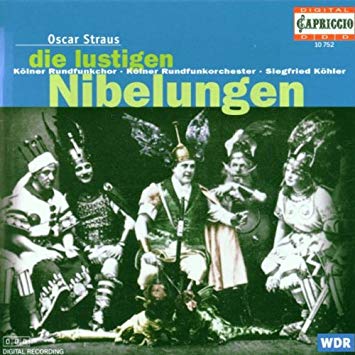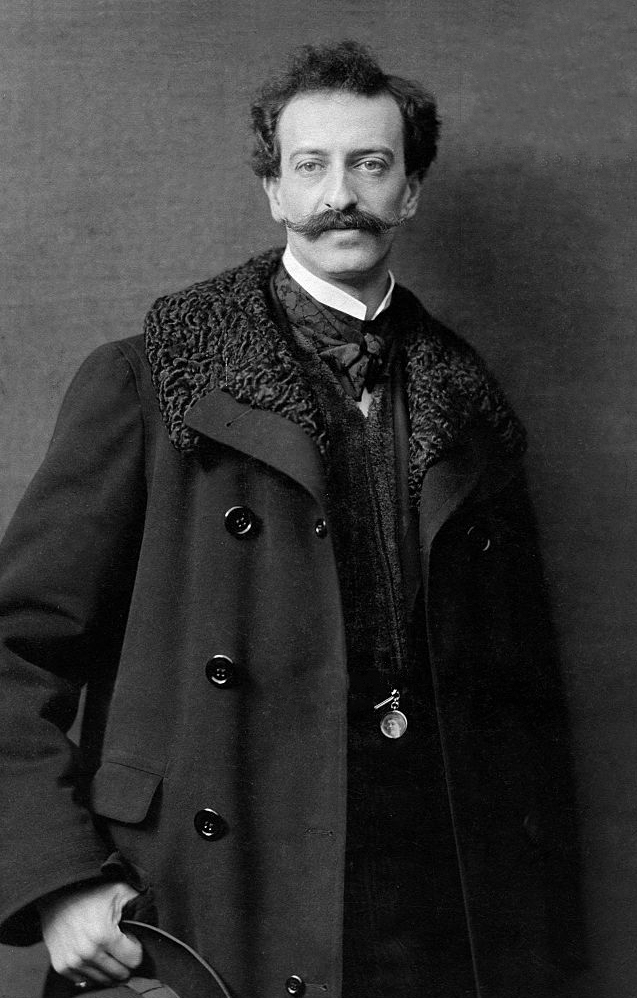Daniel Pantano / Concert Operetta Theater
Operetta Research Center
14 May, 2019
My journey with Oscar Straus all began when a colleague at a music conservatory where we worked handed me the German CD of Die lustigen Nibelungen (Capriccio 1996), only because he knew I liked, and worked in operetta. I listened to it, but without knowing where to find a score, I put it on my shelf and forgot about it. Sometime afterward while going through the great operetta score collection at our city library, I found the piano/vocal score in German and the rest is history.

The Capriccio edition of Oscar Straus’s “Die lustigen Nibelungen” from Cologne.
When I found Felix Bloch Erben, the original publisher in Berlin, they sent me the libretto in German, and the fun began. I founded Concert Operetta Theater in 2002 and the name is exactly what we do. Operettas (Viennese, American, Zarzuela and Yiddish) in concert versions. As a producer and singer I did not know where to start with creating an English translation until I found that one of my singers, Michael Ashby had written lyrics before, some for new pieces and some for previously written music, and Stephan Stoeckl, who was a resident of Vienna, in the local music scene, with perfect German language knowledge I knew it could happen.

Conductor Dario Salvi from the UK and Daniel Pantano, executive director of Concert Operetta Theater. (Photo: Dario Salvi Archive)
I left most of the work to these brilliant people. Never writing lyrics myself, I let Michael do the work. Stephan did the word-for-word translation and I played with the English dialogue. We put it together in 2010 and performed it in both Philadelphia and the Lincoln Center area of NYC at Merkin Hall. It was done with piano, minimum props and music score.

Siegfried awakens Brünnhilde, a drawing by Otto Donner von Richter from 1892.
The critics enjoyed our premiere performance, but I knew the history of the work in Germany and Vienna and that’s what intrigued me. Done almost as an underground production, a librettist who used an alias in print, and an operetta that caused a riot 4 years later (1908) and banned from play in any German speaking country, I had never heard that happen before to an operetta. It did get a reprise when Straus became the Intendant of the Ronacher Theater in Vienna, but it died after the second performance in 1916.

Oscar Straus, 1907.
Somehow we had to save the work and introduce it to American audiences. I thought nine years after the first COT performance that it was time to bring it back. Michael and Stephan wanted to do some editing of the lyrics and dialogue. The most fun will be that there will be two boy sopranos (Volker and Vogel) in the show from The Philadelphia Boys Choir where both Stoeckl and Asby work. Three of the original singers are coming back for their show and a new music director will make this a wild and fun ride.
I know that Die lustigen Nibelung is getting played (a bit) in Europe, but I was hoping that some of the companies in American would pick up on it and produce a full production of it with orchestra. With ten soloists and chorus it would be perfect for a summer festival or University production.
COT has also performed The Chocolate Soldier and A Waltz Dream, but I feel a personal connection to the Court of Worms and The Merry Nibelung.
For more information and performance dates, click here.
